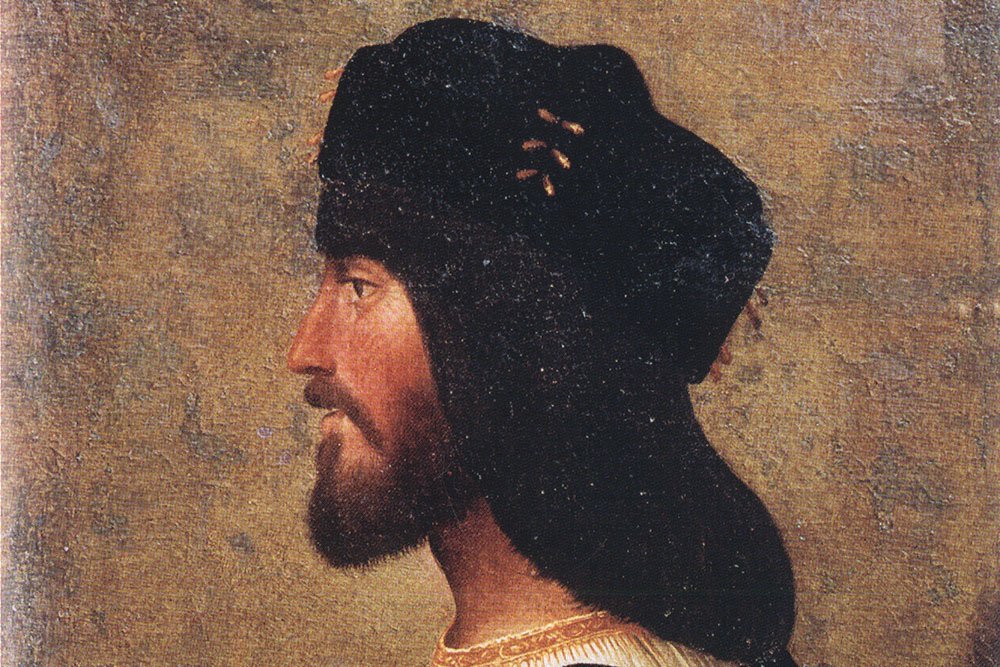
In the intricate tapestry of Renaissance history, few figures cast as long a shadow as Cesare Borgia. Son of Pope Alexander VI, Cesare's life was a saga of political intrigue, military conquests, and Machiavellian maneuvers. This article delves deep into the enigmatic persona of Cesare Borgia, exploring his early life, rise to power, controversies, military campaigns, downfall, and lasting legacy.
Born on September 13, 1475, in Rome, Cesare Borgia entered the world with a golden spoon in his mouth, destined for greatness by birthright. His father, Rodrigo Borgia, ascended to the papal throne as Pope Alexander VI, affording Cesare unprecedented opportunities for power and influence. Yet, Cesare's ambition surpassed the confines of religious authority.
Despite his ecclesiastical upbringing, Cesare showed a penchant for secular affairs. Educated in the finest institutions of the time, he cultivated skills in diplomacy, warfare, and statesmanship. Fluent in multiple languages and well-versed in classical literature, Cesare possessed the intellectual acumen necessary to navigate the treacherous waters of Renaissance politics.
Cesare Borgia's meteoric rise to power began with his appointment as a cardinal at the tender age of 18. This elevation, orchestrated by his father, solidified the Borgia family's grip on the Vatican and provided Cesare with a platform from which to launch his ambitions. However, Cesare's sights were set beyond the confines of the Church; he hungered for secular dominion.
With his father's blessing, Cesare embarked on a relentless campaign to expand the Borgia influence across the Italian peninsula. Through a combination of alliances, manipulation, and sheer force of will, he carved out a domain for himself in the Romagna region, asserting control over its fractious city-states.
Cesare Borgia's military prowess was the stuff of legend. A cunning strategist and fearless commander, he employed innovative tactics and ruthless efficiency on the battlefield. His conquest of the Romagna stands as a testament to his martial skill and political acumen.
With a small but disciplined army at his disposal, Cesare waged war against rival factions, employing a mix of diplomacy, subterfuge, and sheer brute force to achieve his objectives. His campaigns were marked by audacity and ruthlessness, earning him both admirers and detractors in equal measure.
Cesare Borgia's methods were as controversial as they were effective. He was not averse to employing deceit, betrayal, and even murder to further his ambitions. His Machiavellian tactics earned him a reputation as a cunning and ruthless operator, willing to sacrifice moral principles for the sake of power.
Niccolò Machiavelli, the famed political philosopher, immortalized Cesare Borgia in his seminal work, "The Prince." Drawing inspiration from Cesare's exploits, Machiavelli extolled the virtues of ruthlessness and pragmatism in the pursuit of political power.
However, Cesare's unscrupulous methods made him many enemies. His disregard for traditional moral standards and his willingness to betray allies for personal gain earned him the enmity of both his contemporaries and posterity.
Despite his early successes, Cesare Borgia's fortunes eventually waned. Following the death of his father in 1503, Cesare found himself embroiled in a power struggle with the new pontiff, Pope Julius II. His alliance with the French king Louis XII backfired, leading to his eventual downfall.
Defeated and imprisoned, Cesare's dreams of establishing a lasting dynasty were shattered. Though he managed to escape captivity, his power and influence were greatly diminished. He spent his remaining years wandering Europe, a shadow of his former self.
Cesare Borgia died in 1507, at the age of 31, his ambitions unfulfilled. Yet, his legacy endures as a symbol of ambition, ruthlessness, and political intrigue. Despite his flaws and controversies, Cesare Borgia left an indelible mark on history, a testament to the complexities of power and ambition in Renaissance Italy.
In conclusion, Cesare Borgia's life was a saga of ambition, intrigue, and Machiavellian politics. His rise and fall epitomize the tumultuous nature of Renaissance Italy, where alliances were fragile, and betrayal was commonplace. Though his methods were ruthless and his legacy controversial, Cesare Borgia remains an enduring figure in the annals of history, a reminder of the enduring allure of power and ambition.

More Details